Dealing with challenges of a rising China in the Indo-Pacific: Japanese Defence Minister Nobuo Kishi and former Australian Prime Minister Kevin Rudd
What drives the interest of the West and Japan in the Indo-Pacific? Japanese Defence Minister Nobuo Kishi and former Australian Prime Minister Kevin Rudd, who is also president of Asia Society Policy Institute, present two perspectives from the region. This opinion piece was first published in THE BERLIN PULSE, Körber-Stiftung or the Körber Foundation's guide to German foreign policy.
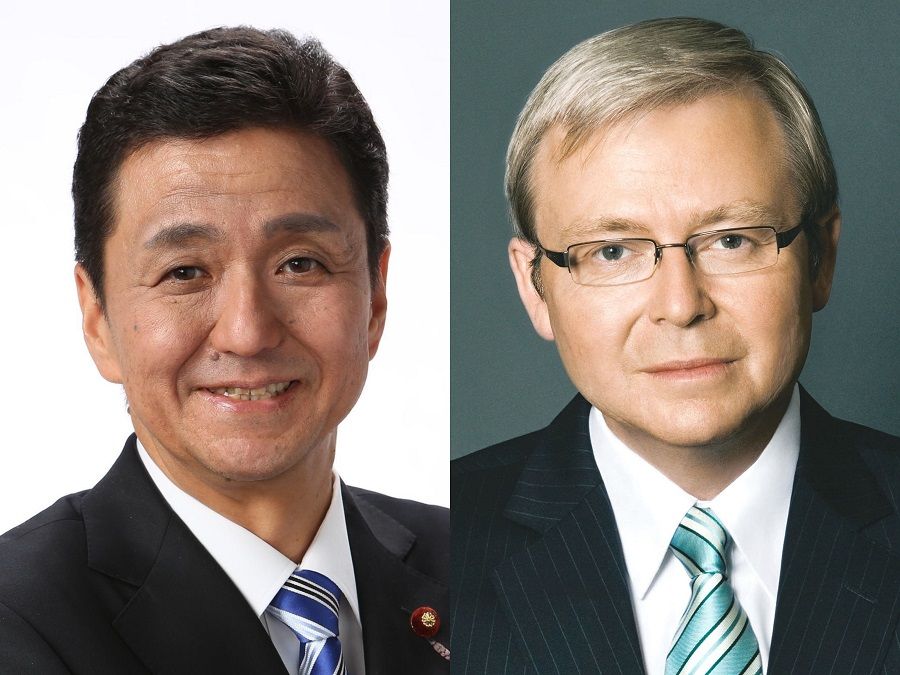
Körber-Stiftung: The Indo-Pacific is currently on everyone's lips, in the United States but also in Europe. Why?
Japanese Defence Minister Nobuo Kishi (Kishi): It is the centre of vitality for the world. More than half of the global population lives here, and a third of the global trade passes through the South China Sea. Therefore, realising a stable and autonomous development of the region is essential for global stability and prosperity, which is why also the United States and Europe are strengthening their commitment.
Körber-Stiftung: Looking at the strategies and guidelines of the EU and several European countries for the Indo-Pacific, are they realistic regarding their capacities?
Kishi: It is important that they show their position and establish a presence in the region first. This is currently more relevant than actual capabilities.
Körber-Stiftung: How should European engagement look like to be a real asset?
Kishi: The deployment of the German frigate Bayern to the Indo-Pacific is a great example for the kind of European engagement we need. It represents Germany's commitment to proactively contribute to establishing peace and stability in the region. Additional involvement and presence of European countries will be needed to achieve this goal.
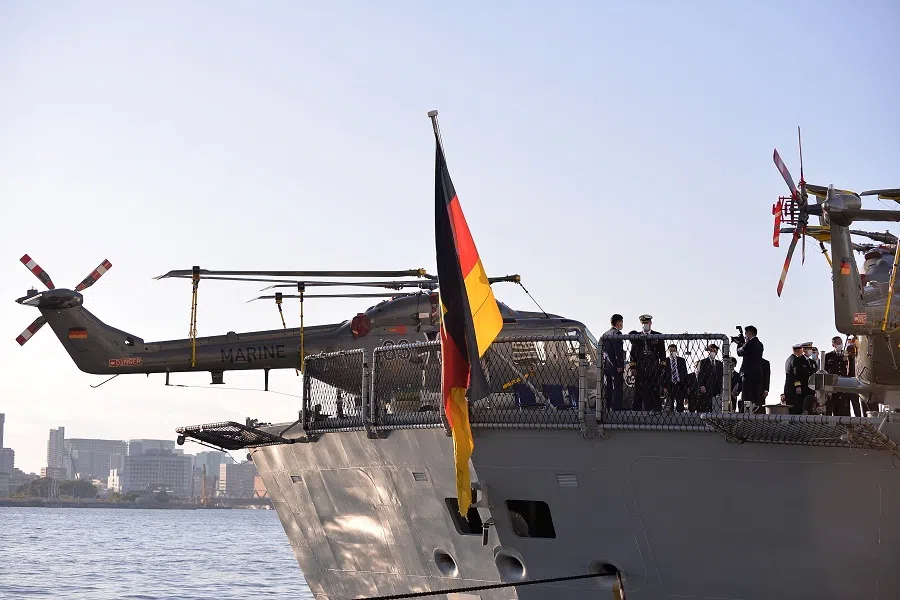
Körber-Stiftung: But the deployment of the German frigate was also criticised for not being a strong enough signal towards China.
Kishi: Japan certainly welcomed the deployment and I do not think it was directed towards a specific country. In August, we conducted our first joint exercise with the German frigate, and we are currently coordinating further exercises. I think this demonstrates our shared values of democracy and an open maritime order.
Körber-Stiftung: Can you understand the reluctance of the German public to take part in naval missions to protect freedom of navigation and trade routes?
Kishi: Japan also faces internal controversies when it comes to deploying our self-defence forces. Our countries have similar historical backgrounds. But we also share that we have achieved our economic prosperity based on maritime trade. And this heavily depends upon a free and open maritime order based on the rule of law. Therefore, Japan has been steadfast in utilising our self-defence forces to foster partnership with our neighbours.
Körber-Stiftung: What are Japan's greatest security concerns in the region?
Kishi: Japan is surrounded by nations with impressive military capabilities. And the frequency of their activities is becoming much more evident recently. Take North Korea, which has launched several ballistic missiles in 2021, or the military presence of China. Less obscure but nonetheless important is the development of so-called grey zone situations - competitions in terms of territory, sovereignty, and economic growth - which increasingly risk spiralling out of control.
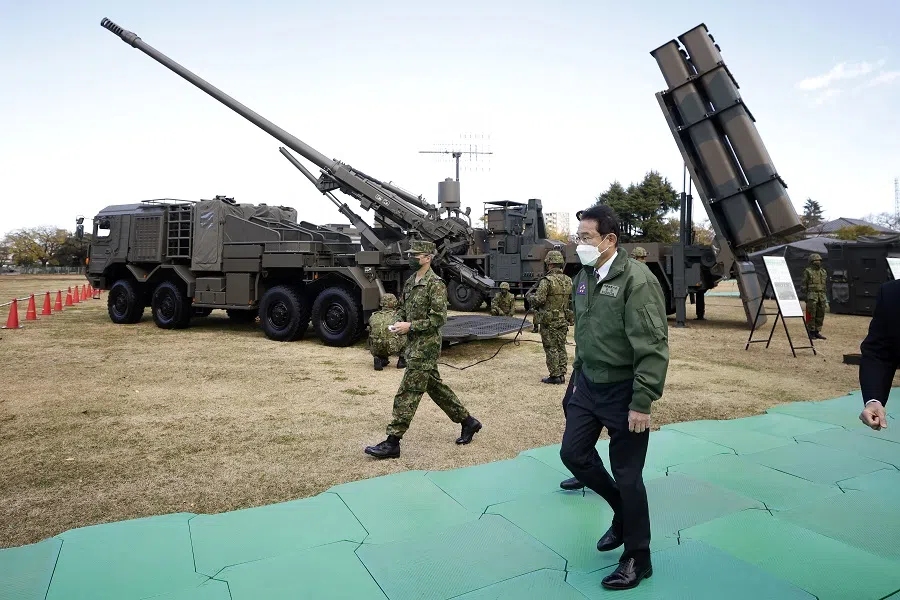
Körber-Stiftung: Can you give an example?
Kishi: In the East China Sea, Chinese coast guard vessels repeatedly intrude into Japan's territorial waters. They are seen for consecutive days in the contiguous zone surrounding the Senkaku Islands, an inherent part of Japan's territory, and regularly approach Japanese fishing boats. In some parts of the South China Sea, China constructs artificial islands, with some of them being militarised, disregarding the protests of its neighbours. These issues are a legitimate concern not only for Japan but also for the entire international community.
Körber-Stiftung: How does Japan plan to preserve regional peace and security?
Kishi: First, Japan will bolster its own national defence capabilities as well as enhance the deterrence and response capabilities of the Japan-US alliance. Enhancing security cooperation with other partners is also important. Second, a stable relationship between China and its regional partners is crucial. At the same time, we cannot sacrifice core values, such as democracy and human rights. We would like to resolve some challenges through a direct high-level exchange with our counterparts in China.
Körber-Stiftung: Talking about partners, how will the Quad have developed five years from now?
Kishi: The four powers of the Quad have been progressing in several fields, including maritime security, anti-terrorism operations, cybersecurity, humanitarian aid and disaster relief. We hope to continue our defence cooperation and believe that the Quad will increase the possibilities for further cooperation, also with other regional partners.
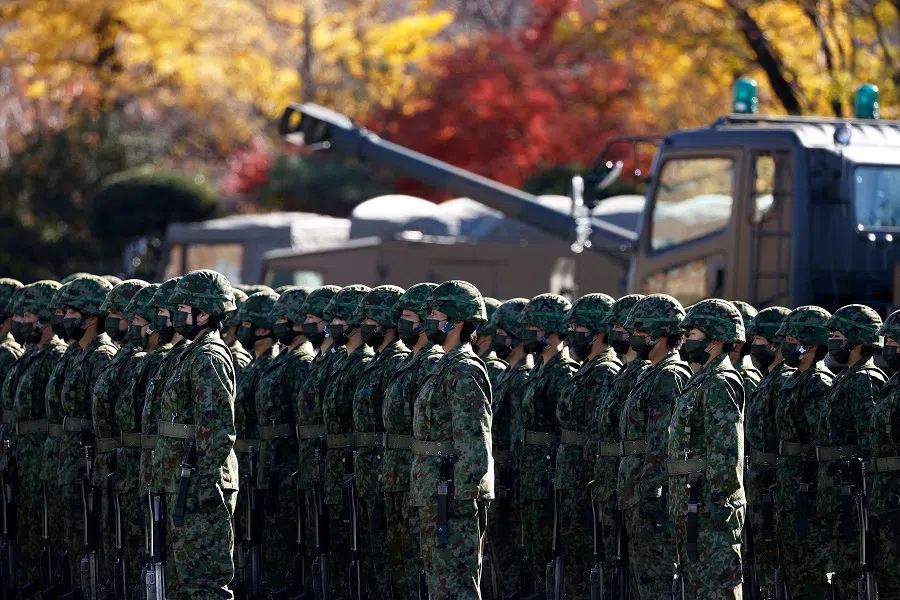
--------------------------------------------------------------
Körber-Stiftung: Why are Germany and Europe so interested in the Indo-Pacific region lately?
Former Australian Prime Minister Kevin Rudd (Rudd): I think there are three big factors at work. First, that the balance of economic and military power between the United States and China is getting closer than in the past. In the 2020s we are likely to see the Chinese economy becoming the largest in the world. Second, Xi Jinping seeks to change both the regional and the international order in a manner which is more compatible with Chinese interests and values. Third, through cyberspace and its technological capabilities, China's security policy is not just regional but becomes global.
Körber-Stiftung: Do the European Union and its members respond sufficiently to these three developments?
Rudd: Ultimately that is a matter for the Europeans. But China will progressively seek to establish an increasingly illiberal international order, much more aligned with a Russian worldview than an American or Western one. China focuses most on Germany in Europe. Therefore, Germany's next government plays an important role in working out which joint strategy with the United States towards China will be possible.
Körber-Stiftung: What advice would you give to the next German chancellor regarding Germany's future China policy?
Rudd: I think it is too simplistic to look at China exclusively as an economic opportunity. This posture is neither helpful regarding German technological innovation and manufacturing nor consistent with an American worldview. So, my advice would be to be mindful.

Körber-Stiftung: Germany is often criticised for being too soft on China, fearing economic consequences. What could we learn from Australia's experience in this regard?
Rudd: First, that no country should fear economic coercion. Otherwise, you begin a policy of appeasement, which is unacceptable for countries in the Western political tradition. Second, it makes collective sense for liberal economies with a commitment to universal human rights to have a common position on China because that makes it much harder for China to pick individual countries off.
Körber-Stiftung: Besides cooperation, what should democracies do, to respond to the challenges China poses to them?
Rudd: They should lend their collective muscle to reinvigorate the United Nations multilateral system and the Bretton Woods institutions. These institutions are still good, even if the Americans wax and wane depending on whether Republicans or Democrats are governing. And due to this episodic vacuum, China's influence in these UN institutions grows every year. The level of Chinese-Russian collaboration in the UN Security Council, for example, is virtually seamless. Therefore, the major democracies with sophisticated economies, global reach and large diplomatic services must rebuild and strengthen the international rules-based order.
Körber-Stiftung: How could this be done?
Rudd: For example, by turning the German-French Alliance on Multilateralism into an action programme across major democracies in Europe and around the world. These democracies can work together on an institutional restrengthening of the global governance machinery - with or without the Americans.
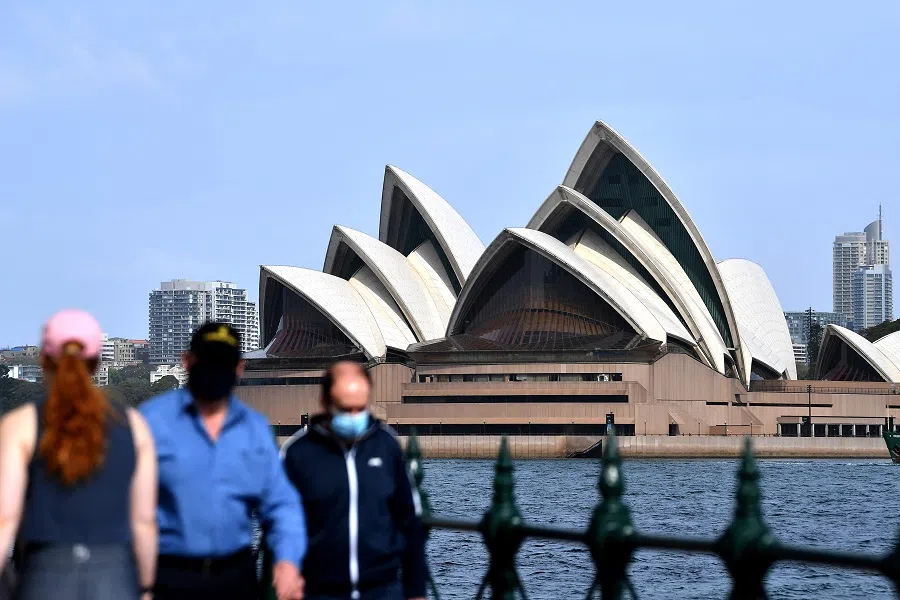
Körber-Stiftung: Talking about the United States, what is the main driver for the increasing cooperation with other Quad members, such as Japan, India, and Australia?
Rudd: It is primarily China's increasing assertiveness. The one triggering event was the Sino-Indian border crisis in June 2020. Without this incident, there would be no Quad today.
Körber-Stiftung: Does China underestimate the Quad?
Rudd: China has underestimated the extent to which the redirection of its national strategy since 2014 provoked a dialectical response of these countries. Whether it is economic coercion towards Australia, territorial confrontation with Japan or with India along the border, or the macro confrontation with the United States - particularly with regards to Taiwan. This is the reason why the Quad is now gathering strength.
Körber-Stiftung: Some analysts foresee an arms race in the Indo-Pacific. Is the Quad a factor for regional destabilisation?
Rudd: Prior to the establishment of the Quad, China's own military expenditure has increased each year for the last decade by the greatest rate of any regional power in the Indo-Pacific. In addition, strategic stability - both in Europe and in Asia - still hangs off the principle of balance of power. Until today, acting as a balance of power against Russia and previously the Soviet Union is the reason for NATO's existence. Regrettably, the same logic now applies in East Asia. The argument is that stability will only be achieved by balancing one set of powers against the other and not by negotiation between one or several weak powers and a strong military power.
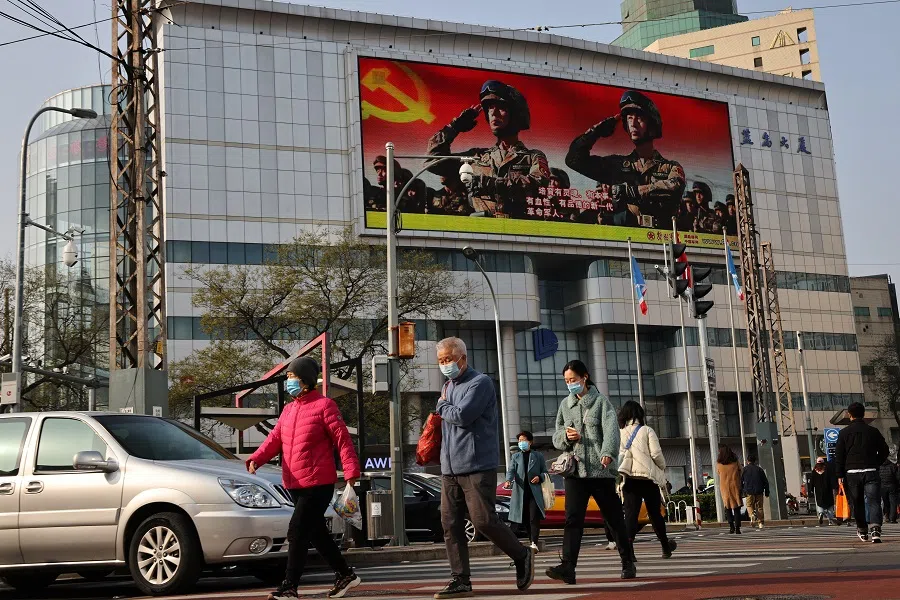
Körber-Stiftung: And do you think that the Quad will be able to balance China?
Rudd: It is too early to tell. The greatest weakness of the Quad is its lack of an economic dimension. The United States' retreat from trade liberalisation in Asia in 2017 was the height of American strategic irresponsibility. China is the largest trading partner of every single country in the Indo-Pacific, except for India. Therefore, the gravitational pull of the Chinese economy is even stronger in Asia than in Germany or Europe. Unless the United States re-embrace a free trade agreement bigger than the Trans-Pacific Partnership, the Quad will not prevail ultimately.
Körber-Stiftung: The German public is rather reluctant, when it comes to sending its armed forces abroad, also for the protection of maritime trade routes. Would you convince them to change their mind?
Rudd: In my view, the real question is, whether Germany is going to pursue a European or a global strategy for the future. The latter can be executed in the absence of German military deployment beyond Europe. Germany can have a global security and foreign policy that regards the Indo-Pacific as much as relevant to Germany's interests as Europe, if you aggregate economics, cyber and other non-traditional security threats, human rights and prospectively the rules-based order.
This opinion piece was first published in THE BERLIN PULSE as "Indo-Pacific: Prosperity or power?". THE BERLIN PULSE is Körber Foundation's guide to German foreign policy. For more, please visit www.theberlinpulse.org.
Related: Indo-Pacific: Central theatre of America's struggle against its antagonist, China | Indo-Pacific: The central theatre of 21st century great power struggle | What removing the defence budget cap means for Japan's role in the Indo-Pacific | Targeting China, Japan's Indo-Pacific strategy in Southeast Asia runs into headwinds? | Germany's Indo-Pacific vision: Building a multilateral world order with ASEAN | With AUKUS in place, now what for key players in the Indo-Pacific? | Containing China: Will the Quad become an Asian mini-NATO?
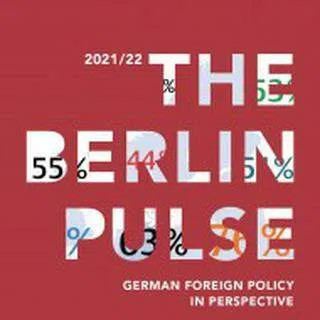


![[Big read] When the Arctic opens, what happens to Singapore?](https://cassette.sphdigital.com.sg/image/thinkchina/da65edebca34645c711c55e83e9877109b3c53847ebb1305573974651df1d13a)
![[Video] George Yeo: America’s deep pain — and why China won’t colonise](https://cassette.sphdigital.com.sg/image/thinkchina/15083e45d96c12390bdea6af2daf19fd9fcd875aa44a0f92796f34e3dad561cc)
